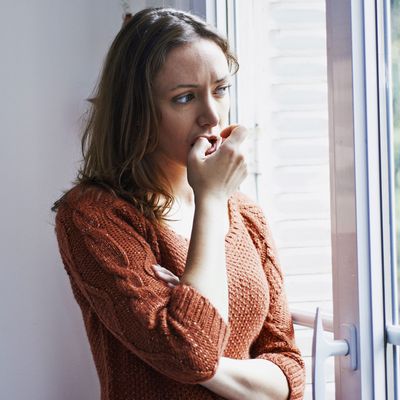
A new study found that women are nearly twice as likely as men to develop anxiety, and the authors believe that part of this disparity is because women have more things to worry about.
For a review published in the journal Brain and Behavior, researchers from the University of Cambridge looked at 48 previous studies and found that about 4 percent of people worldwide have an anxiety disorder. (It’s the highest in North America, at nearly 8 in 100.)
Women and men under 35 were more likely to have anxiety — which can manifest as excessive worry, fear, and a tendency to avoid potentially stressful situations — than older people, but overall, women were nearly twice as likely to be affected as men were. Pregnant women and new moms were also found to have higher rates of obsessive-compulsive disorder than the general population.
Men may be less likely to report anxiety or seek treatment, but other factors might help explain the differences, including brain chemistry and, yes, gender roles. As the BBC writes: “[Study author Olivia Remes] said this could be because of hormonal fluctuations or because women are more prone to stress in general, or because of their traditional role of caring for the young.”
Child care and other forms of unpaid labor can certainly stress a gal out, plus there’s the little fact that we get paid less than men for the same work. We also navigate these obnoxious waters with a brain that some neuroscientists believe is optimized for analytical and intuitive thinking, allowing us to anticipate (and worry about) future risks.
Nervous yet? I’ll keep going. Other experts believe that, since women tend to multitask and “use more of their actual brain than men do,” we need more sleep than men — but we don’t sleep as well as them thanks to said hormones and stresses.
Waiting for the day when we can split anxiety with men, along with parent-shaming.




